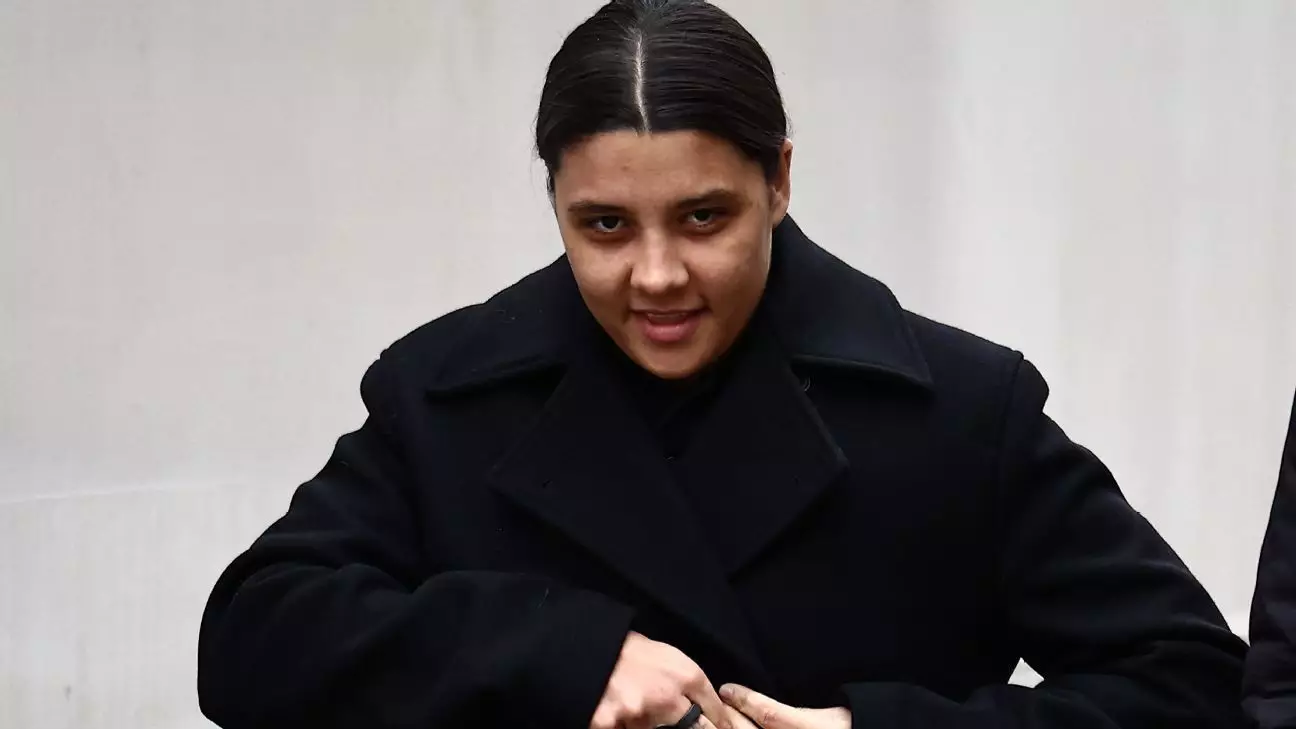The recent trial of Chelsea forward Sam Kerr has unveiled intricate layers of issues surrounding race, authority, and personal accountability in a high-stakes environment. This case, framed by accusations stemming from an incident involving police officer Stephen Lovell, reflects deeper societal implications, particularly in the context of sports, public perception, and racial tension. The details, as presented in court, raise questions not only about the behavior of individuals involved but also about systemic responses to allegations of misconduct.
On January 30, 2023, an altercation took place involving Sam Kerr and her partner Kristie Mewis, a West Ham midfielder, at Twickenham Police Station. Allegations made by Lovell claim that Kerr verbally assaulted him, employing racially charged phrases that led to an accusation of “racially aggravated harassment.” The backdrop of this incident traces back to a chaotic taxi ride that ended with the couple at the police station due to an unresolved dispute over payment and damage to the taxi.
In essence, Kerr and Mewis argue that they were victims of mistreatment by the taxi driver, who allegedly behaved irrationally during the ride. The contrasting narratives, with Lovell emphasizing his feelings of humiliation and Kerr maintaining that her comments do not meet the threshold for criminal behavior, illuminate a complex interplay of power dynamics often at play in interactions between civilians and law enforcement. This backdrop sets the stage for understanding how public figures interact with authority, especially when complicated by the socio-political discourse on race.
The proceedings unfolded with critical scrutiny over the motivations behind the charges levied against Kerr. Notably, it was revealed that the Crown Prosecution Service (CPS) initially opted not to pursue charges, indicating a lack of compelling evidence to justify prosecution. Lovell’s shift in his statements, particularly after the CPS decision, raises questions about the integrity of the claims. The defense argued that Lovell’s subsequent statements were crafted under pressure, primarily because of a desire to validate the process that seemingly failed to protect him as an officer after the alleged verbal assault.
As the courtroom drama progresses, the role of public performance in the narrative cannot be overlooked. The timing of the officer’s shift in testimony—occurring against the backdrop of the Women’s World Cup, where Kerr was gaining international recognition—adds another layer of scrutiny and potential motivations. This context prompts an analysis of whether Lovell’s actions were influenced by Kerr’s rising profile, thereby complicating the perception of bias in his claims.
The racial component of the accusations cannot be ignored. Lovell described feeling “shocked” and “humiliated” by Kerr’s remarks, and the suggestion that her comments were racial in nature prompts a discussion around how racial dynamics influence perceptions of victimization. It highlights a broader societal discussion about sensitivity and accountability within racially charged discourse. In a society where race plays an ever-increasing role in narratives of public figures, the venue of a police station exposes the intersections of race and authority that merit critical examination.
For many, the notion of feeling belittled or insulted, particularly by a high-profile figure like Kerr, can provoke strong emotional responses that may cloud an individual’s judgment about the incident’s larger implications. The defense’s probing suggested that the officer’s reaction may have been unnecessarily influenced by Kerr’s public identity rather than an objective assessment of the situation. This revelation presents a crucial point of contention, illustrating how personal emotion can often intercede in professional responsibilities.
The ongoing courtroom deliberations involving Sam Kerr offer a microcosmic glimpse into larger societal issues concerning race, authority, and celebrity within the realms of sports and law enforcement. As the trial continues to evolve, it serves as a reminder of the complexities involved in administering justice, especially when accusations spiraling from high-profile individuals come into play.
Ultimately, the juxtaposition of Kerr’s global stature against Lovell’s claims presents both an individual and societal challenge: how do we navigate the intertwined narratives of race and authority while holding each other accountable? The public interest in this case highlights not only the power dynamics at play but also the necessity for transparent discourse surrounding race, accountability, and civility in interactions between public figures and law enforcement.

